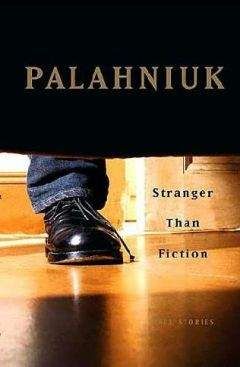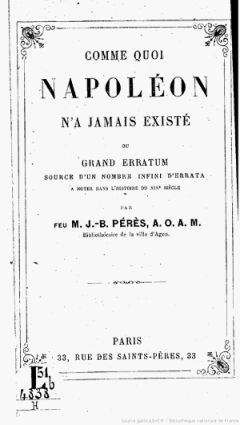Clive Cussler - Spartan Gold
Sam replied, “To be honest, no, Mrs.—”
“Yvette.”
“Yvette. To be honest, no, you’re not at all.”
She laughed, her white teeth flashing in the sun. “And you, Remi, you were expecting someone more matronly perhaps, a French bejeweled snob with a poodle under one arm and a champagne flute in the other?”
“I’m sorry, but yes, I was.”
“Oh, goodness, don’t apologize. The woman I just described is more the rule than the exception here. The truth is, I was born in Chicago. Went to grade school there for a few years before my parents moved us back to Nice. They were simple people, my mother and father—quite wealthy, but with simple tastes. Without them, I might have ended up the stereotype you were expecting.”
Langdon appeared up the stairs and placed a tray containing a carafe of iced tea and frosted glasses on the table between them. “Thank you, Langdon.”
“Yes, ma’am.” He turned to go.
“Have fun tonight, Langdon. And good luck.”
“Yes, ma’am, thank you.”
Once he was out of earshot, Yvette leaned forward and whispered, “Langdon’s been dating a widow for a year now. He’s going to ask her to marry him. Langdon is one of the best Formula One drivers in Monaco, you know.”
“Really,” Sam replied.
“Oh, yes. Very famous.”
“If you don’t mind me asking, why is he . . .”
“Working for me?” Sam nodded, and she said, “We’ve been together for thirty years, since I started dating my late husband. I pay him well and we like each other. He’s not quite a butler, really, but more of a . . . what is the word . . . in American football he would be called a—”
“Free safety?”
“Yes, that’s it. He wears many hats for me. Langdon was a commando before he retired—British Special Air Service. Very tough fellow. Anyway, we’ll hold the wedding and reception here—providing she says yes, of course. You two should come, you really should. You don’t mind iced tea, do you?” she asked, pouring for them. “Not really the beverage of the wealthy, but I love it.”
Sam and Remi each accepted a glass from her.
“So: Arnaud Laurent . . . My great-great-great-something grandfather. You’re interested in him, yes?”
“Very much,” Remi said. “First, may I ask why you agreed to see us?”
“I’ve read about you, about your adventures. And your charitable work. I admire the way you live your lives. You know, at the risk of being crass, there are families here that are frighteningly rich, so much so that they couldn’t spend all their money if they tried and yet they give none of it away. As far as I’m concerned, the tighter you cling to money, the tighter its hold on you. Don’t you agree?”
“We do,” Sam replied.
“So that’s why I agreed to see you: I knew I would like you, and I was right, and I was also intrigued about how Arnaud fit into whatever quest you’re on—you’re on a quest, yes, an adventure?”
“More or less.”
“Marvelous. Perhaps I can tag along sometime? Well, I apologize, I’m running at the mouth. Do you mind sharing with me the nature of your work?”
Remi and Sam exchanged glances, each reading the other’s expression. Their instincts, which were more often right than wrong, told them they could trust Yvette Fournier-Desmarais.
Sam said, “We stumbled across a bottle of wine, very rare, that might be connected to Arnaud—”
“Napoleon’s Lost Cellar, yes?”
“Well, yes. Maybe.”
“That’s fantastic!” Yvette said, laughing. “Wonderful. If anyone should find the cellar, it should be you two! Of course I’ll help in any way I can. You’ll do the right thing, I know. Back to Arnaud: In all fairness I should tell you you’re not the first ones to ask about him. A man called my attorney a few months ago—”
“Did you get his name?” Sam asked.
“My attorney has it, but I don’t remember. Something Russian, I think. Anyway, the man was quite insistent, even a little rude, so I chose not to see him. Sam, Remi, I can see from your faces this means something to you. Do you know who I’m talking about?”
“We might,” Sam replied. “We’ve run into our own ill-mannered Russian and, given how far he’s been willing to go, we’re probably talking about the same person.”
“You haven’t had any unwelcome company?” Remi asked her.
“No, no. And I’m not worried. Between Langdon and his three cohorts—who are lurking around here somewhere—and the alarm system and Henri here, I feel completely safe. Not to mention I’m a fantastic shot with a pistol.”
“Something you and Remi have in common,” Sam said.
“Is that true, Remi, you’re a marksman?”
“I wouldn’t go that far—”
Yvette leaned forward and tapped Remi’s knee. “When you can stay longer we’ll go shooting, just us girls. There’s a wonderful beach club in Menton not far from here; they have an indoor range. So, back to our Russian villain: He was very interested in Arnaud’s crypt on Elba. I assume that’s why you came to see me?”
“Yes,” Remi said.
“Well, we told him nothing. I suspected he’d already been there and came away disappointed, which was why he was so badly behaved.”
“What do you mean?”
Yvette leaned forward and lowered her voice to a conspiratorial whisper: “A few years ago there was some vandalism on Elba, just teenage children running amok, but it got me thinking. Given who Arnaud is, and how . . . zealous some Napoleonophiles can be, we decided to move Arnaud’s sarcophagus.”
“To where?” Sam asked. “Off the island?”
“Oh, no, it’s still there. Arnaud wouldn’t have approved of being taken off Elba. No, we found another graveyard with an empty crypt and moved him there. He’s safe and sound. I assume you’d like my permission to peek inside his sarcophagus? That’s why you’ve come, yes?”
Sam smiled. “I’m glad you said it. I wasn’t sure of the etiquette when asking a relative if they’d mind us poking around their ancestor’s remains.”
Yvette waved her hand dismissively. “Not to worry. You’ll be respectful, I’m certain. Anything you take, you’ll return, yes?”
“Of course,” Remi replied. “Though none of it might be necessary. We’ve been told Arnaud was buried with some personal effects. Do you happen to know what they were?”
“No, I don’t, I’m sorry. I’m sure the only person who knew the answer to that was his wife, Marie. And I can assure you, the sarcophagus hasn’t been opened since his death. So now I’ll gladly tell you where to find the crypt, but on one condition.”
“Name it,” Sam said.
“You’ll both stay for dinner.”
Remi smiled. “We’d love to.”
“Wonderful! When you reach Elba, you’ll be in Rio Marina. From there you’ll drive west on the SP26 into the mountains. . . .”
CHAPTER 23
ELBA, ITALY
He let the beetle crawl up his finger and over the back of his hand before he nudged it with his other finger into his palm. Sam rose from his crouch alongside the dirt road and turned to Remi, who was taking pictures of the ocean far below.
“History’s a funny thing,” he said.
“How so?”
“This beetle. For all we know it could be related to one Napoleon himself used to make the ink.”
“Has it spit on you?”
“Not as far as I can tell.”
“Selma said the ink came from a spitting beetle.”
“You’re missing my point. Where’s your sense of whimsy?”
Remi lowered her camera and looked at him.
“Sorry,” he said with a smile, “forgot who I was talking to.”
“I understand your point.” She checked her watch then said, “We’d better get moving. It’s almost three. Daylight’s burning.”
Their dinner the night before with Yvette Fournier-Desmarais had gone late into the evening and well into three bottles of wine, by which time she had convinced them to cancel their hotel reservations and stay the night. They awoke the next morning and shared a veranda breakfast of coffee, croissants, fresh pineapple, and French scrambled eggs with leeks, fresh pepper, and mint before heading to the airport.
For reasons neither Sam nor Remi had been able to deduce, daily flights to and from Elba were restricted to one airline, Inter-Sky, which serviced only three cities, Friedrichshafen, Munich, and Zurich. The other two carriers, SkyWork and Elbafly, offered more departure points, but only flew three days a week, so from Nice they’d boarded an Air France flight to Florence, then a train to Piombino, then finally a ferry across the ten-mile stretch of sea to Rio Marina on Elba’s east coast.
Their rental car—a compact 1991 Lancia Delta—paled in comparison to the Porsche Cayenne, but the air conditioner worked and the engine, small though it was, ran smoothly.
Per Yvette’s instructions, they’d driven inland from Rio Marina, passing through one quaint Tuscan village after another—Togliatti, Sivera, San Lorenzo—winding their way through lush rolling hills and vineyards, higher and higher into the mountains, until stopping at this promontory overlooking the eastern side of the island.
If not for Napoleon’s exile, Elba would not be the household name it was, which, as far as Sam and Remi were concerned, was a shame as it had its own unique story.
Over its long history Elba had seen its share of invaders and occupiers, from the Etruscans to the Romans to the Saracens, until the eleventh century, when the island fell under the aegis of the Republic of Pisa. From there it changed hands a half dozen times through sale or annexation, starting with the Visconti of Milan and ending in 1860 when it became a protectorate of the Kingdom of Italy.
Remi snapped a few more pictures then they got back in the car and continued on.
“So where exactly did Napoleon spend his exile?” Sam asked.
Remi flipped through her Post-it Note-marked Frommer’s guidebook. “In Portoferraio, on the northern coast. He had two homes, actually, the Villa San Martino and the Villa dei Mulini. He had a staff of somewhere between six hundred and one thousand, and took the title Emperor of Elba.”
“Took the title, or was slapped in the face with it?” Sam asked. “After having had a good chunk of Europe under his thumb, ‘Emperor of Elba’ had to have been something of a letdown.”
“True. Another fun fact: before leaving for Elba Napoleon tried to poison himself.”
“No kidding.”
“Apparently he kept it in a bottle around his neck—a cocktail of opium, belladonna, and white hellabore. Before leaving on the Russian Campaign he had it mixed up.”
“He probably didn’t want to fall into the hands of the Cossacks.”
“Well, I can’t say I blame him. They still don’t like him. Anyway, he drank it but by then it was a couple years old and too weak. He spent the night writhing in pain on the floor, but survived.”
“Remi, you’re a font of knowledge.”
She ignored him, still reading. “What none of the historians seemed to agree on is how exactly he escaped. There were both French and Prussian guards stationed all over the island and offshore there was a British man-o’-war on constant patrol.”
“Tricky little devil.”
“Car behind us,” Sam said a few minutes later. Remi turned and looked out the back window. A half mile down the mountain road a cream-colored Peugeot was rounding a curve. It disappeared from view for a few moments behind a hillside, then reappeared.
“He’s in a hurry.”
Since leaving the Bahamas both Sam and Remi had been hyper-vigilant to signs of pursuit, but had so far seen nothing. The problem with an island as small as Elba was that it had limited points of entry and Bondaruk’s wealth could go a long way here.
Sam tightened his grip on the wheel, eyes alternating between the rearview mirror and the road ahead.
A couple minutes later the Peugeot appeared behind them and closed the gap until it was only a few feet off their bumper. Glare from the sun kept the occupants in silhouette, but Sam could make out two shapes, both male.
Sam stuck his arm out the window and waved for them to pass.
The Peugeot didn’t move, glued to their tail, then abruptly it pulled out and started speeding up. Sam tensed his foot, ready to hit the brake. Remi glanced out the passenger window; there was the narrowest of dirt shoulders there, followed by a sharp drop-off. Five hundred feet below she could see goats grazing in a pasture; they looked like ants. Their passenger tire swerved a few inches right. Gravel peppered the side of the car. Sam eased left, back onto black-top. “Buckled in?” he said through clenched teeth.
“Yep.”
“Where are they?”
“Coming up right now.”
The Peugeot drew even with Sam’s door. Sitting in the passenger seat, a swarthy man with a handlebar mustache stared at him. The man nodded once, curtly, then the Peugeot’s engine revved and it sprinted ahead and disappeared around the next bend.
“Friendly folks,” Remi said with a loud exhale.
Sam relaxed his hands on the wheel, flexing his fingers to get blood flowing back into them. “How far left to go?”
Remi unfolded the map, her finger tracing along. “Five, six miles.”
They reached their destination in the late afternoon. Perched on the slopes of Monte Capanello and surrounded by forests of Aleppo pines and juniper, the village of Rio nell’Elba, population nine hundred, sat under the shadow of the eleventh-century castle, Volter raio, and was to Sam’s and Remi’s eyes the epitome of a medieval Tuscan village, complete with narrow cobblestoned alleys, shadowed piazzas, and stone balconies overflowing with orchids and cascading lavender.
Remi said, “Says here Rio nell’Elba is the rock-hunting capital of Tuscany. They’re still finding mines that date back to the Etruscans.”
They found a parking spot across from the Hermitage of Santa Caterina and got out. According to Yvette, their contact, a man named Umberto Cipriani, was the assistant curator of the Museo dei Minerali, the Mining Museum. Remi got herself oriented on the map and they started walking, finding the museum ten minutes later. As they crossed the piazza Sam said, “Here, let me take your picture. Stand in front of the fountain.”
She did as he asked, smiled for several shots, then rejoined Sam, who called up the images on the camera’s LCD screen. “We should take another, Sam, I’m a little out of focus.”
“I know. Look at what is in focus. Smile, look pleased.”
Remi peered more closely at the image. Fifty feet behind her blurred figure she could see the hood of a cream-colored car jutting from the mouth of a shadowed alley. Behind the wheel a man stared at them through a pair of binoculars.



